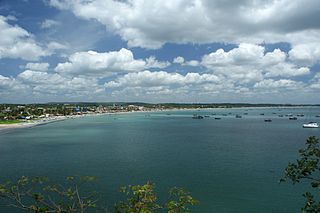| Sir William Coke | |
|---|---|
| Puisne Justice of the Supreme Court of Ceylon | |
| In office 28 October 1810 –1 September 1818 | |
| Succeeded by | Henry Byrne |
| Provisional Chief Justice of Ceylon | |
| In office 6 March 1809 –1811 | |
| Nominated by | Edmund Henry Lushington |
| Appointed by | Alexander Johnston |
| 4th Advocate Fiscal of Ceylon | |
| In office 5 September 1808 –1811 | |
| Preceded by | James Dunkin |
| Succeeded by | Ambrose Hardinge Giffard |
| Personal details | |
| Born | 1776 England |
| Died | 1 September 1818 Trincomalee, British Ceylon |
| Alma mater | Christ Church, Oxford, University of Oxford |
Sir William Coke (1776 – 1 September 1818) was a Puisne Justice of the Supreme Court of Ceylon as well as acting as Provisional Chief Justice of Ceylon and the fourth Advocate Fiscal of Ceylon.
Coke arrived in Ceylon on 15 September 1808. He was appointed on 5 September 1808, succeeding James Dunkin, and held the office until 1811. He was succeeded by Ambrose Hardinge Giffard. [1] [2]
James Dunkin was the first and third Advocate Fiscal of Ceylon. He was appointed on 19 February 1801 and held the office until 1802. Dunkin was appointed again in 1806. He was succeeded by Alexander Johnston.

Sir Ambrose Hardinge Giffard (1771–1827) was chief justice of British Ceylon.
Coke died of dysentery when in Trincomalee for a Criminal Session. [3]

Dysentery is an inflammatory disease of the intestine, especially of the colon, which always results in severe diarrhea and abdominal pains. Other symptoms may include fever and a feeling of incomplete defecation. The disease is caused by several types of infectious pathogens such as bacteria, viruses and parasites.

Trincomalee also known as Gokanna/Gokarna, is the administrative headquarters of the Trincomalee District and major resort port city of Eastern Province, Sri Lanka. Located on the east coast of the island overlooking the Trincomalee Harbour, 237 kilometres (147 mi) north-east of Colombo, 182 kilometres (113 mi) south-east of Jaffna and 111 kilometres (69 mi) miles north of Batticaloa, Trincomalee has been one of the main centres of Sri Lankan Tamil language speaking culture on the island for over two millennia. With a population of 99,135, the city is built on a peninsula of the same name, which divides its inner and outer harbours. People from Trincomalee are known as Trincomalians and the local authority is Trincomalee Urban Council. Trincomalee city is home to the famous Koneswaram temple from where it developed and earned its historic Tamil name Thirukonamalai. The town is home to other historical monuments such as the Bhadrakali Amman Temple, Trincomalee, the Trincomalee Hindu Cultural Hall and, opened in 1897, the Trincomalee Hindu College. Trincomalee is also the site of the Trincomalee railway station and an ancient ferry service to Jaffna and the south side of the harbour at Muttur.

